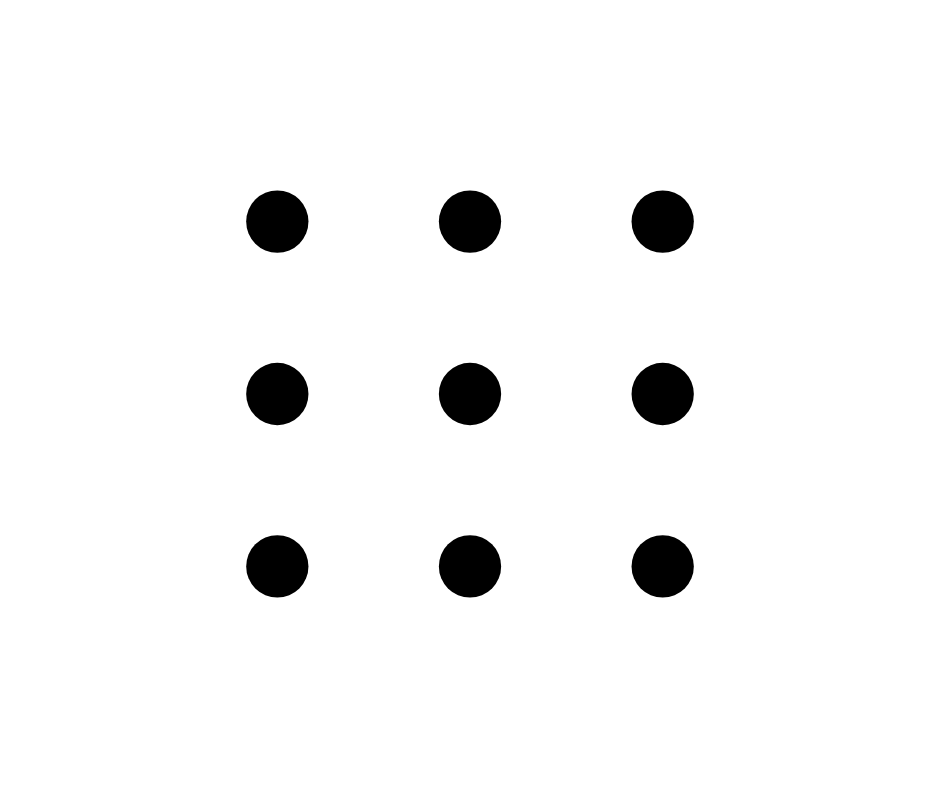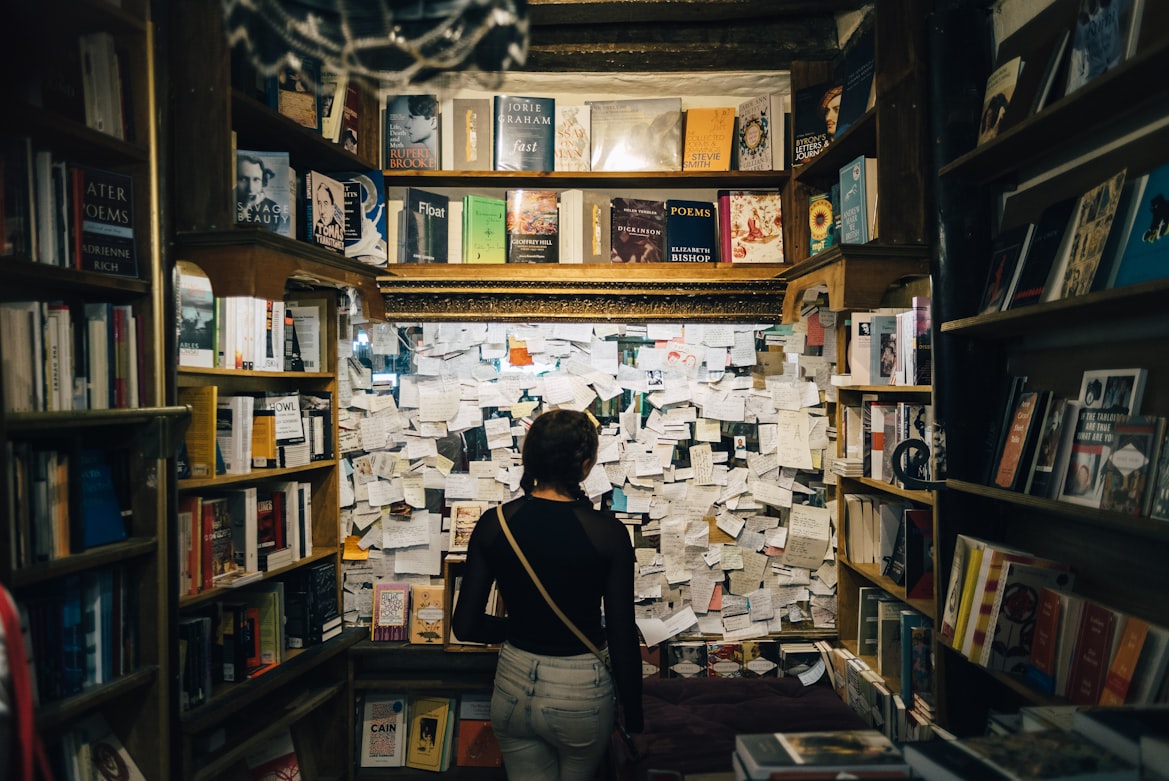One thing I wanted to remember from Elastic was the 9-dots puzzle.
In this puzzle, you are asked to connect these 9 dots in 4 straight lines or less without lifting the pen.
Sounds easy, right? Try it.
-
Apparently, most normal people can't do it impromptu.
But the success rate for solving the puzzle is when:
- we supply with 2 extra dots
- or, we draw another spacious box around the 9-dots (by drawing a bigger box, our brain can think "within the bigger box"
- see the end of the post for some of the answers
The interesting part is the hypothesis:
people are so dominated by the perception of a square that they do not 'see' the possibility of extending lines outside the square formed by the dots (Scheerer, 1963).
Our brain is so used to the geometric border that it prohibits us from seeing the solution because it will require "violating that 9-dots border". We see the 9 dots as a border even though no rule says we can't exceed the dots to solve the puzzle. But because our brain is used to the same pattern same rule, it is wired to interpret everything in the world within what has worked before. Our brain is wired to connect to the "almost similar" experience to solve a problem so everything can be solved efficiently, but this will also become a problem when we can't see beyond the pattern that we are so used to.
It dawned on me, sure, because I'm stuck in the infinite cycle of problems that I can't seem to get out of. When everything I do seems to be failing, I feel like I'm at my lowest, and the anxiety hits, you know, the cycle repeats. I told my sister that it is really hard to be positive all the time especially when the cycle feels a bit too long. So, I need to try to break the cycle, even if it scares the hell out of me, I need to dismantle the whole puzzle, remove everything from my history tab, and start back from scratch. Try to think it through from a fresher point of view, maybe I will see something that can work.
I know, most people keep everything in while figuring it out but I've always been interested in the process itself, so this is one of the sections in my life where I'm figuring out how on earth to deal with a mid-life crisis while being in one. I'm not going to wait until the end of the road and compile it in a book where I tell the world that "I was in a pit but I came out as a winner". The figuring-out part is my story.
And I also kept this from the book:
Sometimes the most powerful revelation one can have is that circumstances have changed. That the rules you are accustomed to no longer apply. That the successful tactics may be tactics that would have been rejected under the old rules. That can be liberating. It can spur you to question your assumptions, help you rise above your fixed paradigms, and restructure your thinking. - Elastic
-
Here are some of the answers:









